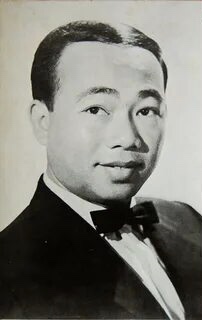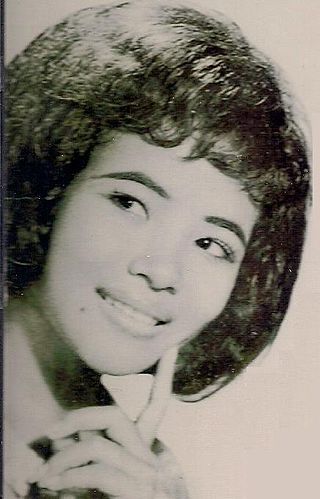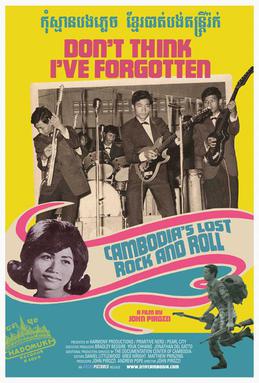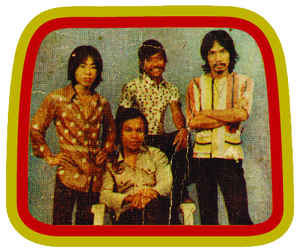See also
- John Chrysostom (c. 347–407), Christian saint whose epithet means "golden mouth"
- Articles containing "golden voice"
Golden voice may refer to:

Sinn Sisamouth was a Cambodian singer-songwriter active from the 1950s to the 1970s. Widely considered the "King of Khmer Music", Sisamouth, along with Ros Serey Sothea, Pen Ran, Mao Sareth, and other Cambodian artists, was part of a thriving pop music scene in Phnom Penh that blended elements of Khmer traditional music with the sounds of rhythm and blues and rock and roll to develop a Cambodian rock sound. Sisamouth died during the Khmer Rouge regime under circumstances that are unclear.

Ros Serey Sothea was a Cambodian singer. She was active during the final years of the First Kingdom of Cambodia and into the Khmer Republic period. She sang in a variety of genres; romantic ballads emerged as her most popular works. Despite a relatively brief career she is credited with singing hundreds of songs. She also ventured into acting, starring in a few films. Details of her life are relatively scarce. She disappeared during the Khmer Rouge regime of the late 1970s but the circumstances of her fate remain a mystery. Norodom Sihanouk granted Sothea the honorary title "Queen with the Golden Voice."

Pen Ran, also commonly known as Pan Ron in some Romanized sources intended for English-speaking audiences, was a Cambodian singer and songwriter who was at the height of her popularity in the 1960s and early 1970s. Known particularly for her western rock and soul influences, flirtatious dancing, and risque lyrics, Pen Ran has been described by the New York Times as a "worldly, wise-cracking foil" to the more restrained Cambodian pop singers of her era. She disappeared during the Khmer Rouge genocide and her fate is unknown.
Ros or ROS or RoS may refer to:
The Voice may refer to:
Pao Chouk Saw is the story of a girl who was once an angel and later became a human for a particular reason. In order to return to her sisters as an angel again, she has to live in the human world with regular human beings for 17 whole months. She then ends up falling in love with a regular guy. But soon he has to leave her behind for a war without knowing that she is actually an angel taking form of a human being and that she can change back to an angel any time soon after he leaves for the war. He leaves having no idea that once he return from war, she may be gone forever.

Chamrieng Et Preang Tuk is a 1974 Cambodian musical film directed and produced by Sinn Sisamouth. The film star Kong Som Eun and Vichara Dany. It also features singer Ros Serey Sothea.
Abul Kasame is a 1968 Khmer film adapted from one of the many tales of 1001 Arabian Nights. The film is directed by Yvon Hem and stars Kong Som Eun and Saom Vansodany. The film has recently been discovered to be in existence in 2008. Another film similar to this, and is also directed by Yvon Hem, is Ynav Bosseba.
Ynav Boseeba is a 1968 Khmer film adapted from one of the many tales of 1001 Arabian Nights. The film is directed by Yvon Hem and stars Kong Som Eun and Saom Vansodany. The film was discovered to be in existence in 2009.
Norok Lokei is a 1969 Khmer film starring Chea Yuthon, Nop Yada and Sak Si Sboung.

Neang Champa Meas is a 1970 Khmer film directed by Saravuth and stars Vann Vannak and Vichara Dany.

Two Shadows is a narrative drama film released in 2012. The film won the Audience Award, Cinematography Award and was nominated for the Grand Jury Award at the 2012 Los Angeles Asian Pacific Film Festival. It is one of the first films to focus on Cambodian immigrants in the United States seeking to sustain family connections in Cambodia since the fall of 1970s communist party, the Khmer Rouge. The film is the second collaboration between director Gregory Cahill and actress Sophea Pel, following the 2006 short film The Golden Voice about Cambodian singer Ros Serey Sothear. The film was shot primarily in Cambodia and also in Los Angeles, California.
Ros Saboeut was a Cambodian activist known for working on behalf of that country's musicians. Saboeut was one of five siblings born to her parents, Ros Bun and Nath Samean. Her younger sister was singer Ros Serey Sothea.

Mao Sareth was a Cambodian singer active from the early 1960s to the mid-1970s. Sareth was born in 1944 in Battambang, with the birth name Pol Sarann. She was one of the earliest popular singers in the Cambodian rock scene of the early 1960s, in which musicians combined traditional Khmer music styles with popular forms from the United States, Europe, and Latin America. Mao was cited as an influence by later singers Pen Ran and Ros Serey Sothea. She is known to have performed live as late as 1973.

Don't Think I've Forgotten: Cambodia's Lost Rock and Roll is a 2014 documentary film, directed by John Pirozzi, about Cambodian rock music in the 1960s and 1970s, before the Khmer Rouge regime and Cambodian genocide.
The Golden Voice is a short film written by Gregory Cahill. It stars Sophea Pel as Ros Serey Sothear.

Drakkar was a Cambodian hard rock band active in the late 1960s and early 1970s. Their music has been noted as an important late-stage development in Cambodian rock of the 1960s and 70s, a thriving music scene that was abruptly crushed by the Khmer Rouge communists in 1975. Some members of the band did not survive the ensuing Cambodian genocide.

Liev Tuk was a Cambodian rock and soul musician active before the Khmer Rouge.
Cambodian rock of the 1960s and 1970s was a thriving and prolific music scene based in Phnom Penh, Cambodia, in which musicians created a unique sound by combining traditional Cambodian music forms with rock and pop influences from records imported into the country from Latin America, Europe, and the United States. U.S. armed forces radio that had been broadcast to troops stationed nearby during the Vietnam War was also a primary influence. This music scene was abruptly crushed by the Khmer Rouge communists in 1975, and many of its musicians disappeared or were executed during the ensuing Cambodian genocide. Due to its unique sounds and the tragic fate of many of its performers, the Cambodian rock scene has attracted the interest of music historians and record collectors, and the genre gained new popularity upon the international release of numerous compilation albums starting in the late 1990s.